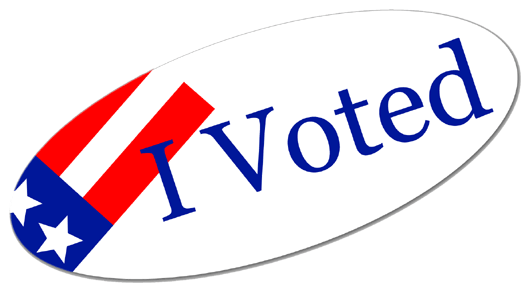If they held an election and nobody noticed, would it still count? Because that’s what this Tuesday’s presidential primary election is starting to feel like: the election that everyone ignored.
Okay, okay, not everyone is ignoring this election. San Francisco Elections Director John Arnst tells us that his department has received about 55,000 mail-in ballots so far out of the nearly 217,000 they sent out, a turnout of about 25 percent. And 1,110 voters have cast their ballots in person during early voting at City Hall as of this afternoon, a level lower than the 2010 or 2008 primaries “by quite a bit,” Arnst said.
That’s not really surprising given that both major political parties have already chosen their presidential candidates, there are no other offices being seriously contested, and the rest of the ballot consists of the Democratic County Central Committee (and its Green and Republican parties counterparts) races and a pair each of ho-hum statewide and local ballot measures. The most interesting one is Proposition A, which seeks to break Recology’s waste collection monopoly in San Francisco by requiring competitive bidding.
“If the garbage issue is the most exciting issue on the ballot, you know it’s the most boring election ever,” says Tony Kelly, who is leading the campaign for Prop. A.
With the exception of a press conference that Kelly and other Prop. A supporters held last week to accuse Recology of being complicit in an alleged recycling kickback scheme by some of its employees, there’s been little to indicate Prop. A has much chance of success given that almost every endorsing group (except the Guardian) opposes the measure.
“Goliath doesn’t lose very often, and we’re being outspent 100 to one,” Kelly said, expressing hopes that the measure can at least garner 35-40 percent of the vote to send a message that Recology should work with the city to allow competitive bidding on some of its contracts.
But with turnout expected to be low, Recology isn’t taking any chances. Its political consultant, Eric Potashner, says the campaign has been assembling up to a couple hundred volunteers and its SoMa headquarters each weekend and “we’re doing the full grassroots outreach.” He expressed confidence that the measure will be defeated: “Folks have been well educated on this issue.”
Arnst estimates that this will be a historically low turnout election: “Top end right now, comparing the last three presidential primaries, I’m looking at 40 percent as the top turnout possible.”
But you know what that means, right? Your vote could be more decisive than ever, particularly for the 24 members of the DCCC, the outcome of which could move the ideological center of that body before its important endorsements in the fall Board of Supervisors races. So click here to take a look at the Guardian’s endorsements and don’t forget to vote.

